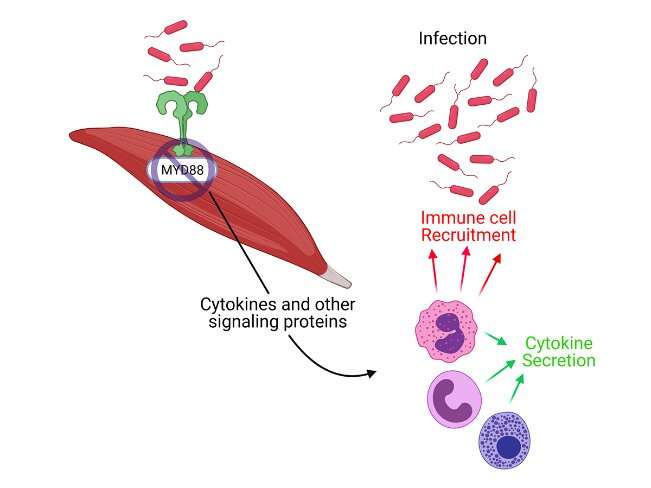
A team of investigators, led by Thomas Clanton, Ph.D. from the Department of Applied Physiology and Kinesiology, College of Health and Human Performance, demonstrated for the first time that skeletal muscles do indeed play an important but poorly understood role in immunity. These investigators specifically knocked out a protein in skeletal muscles called “Myd88′ that is essential for “toll like receptor” signaling, the primary way that cells sense the presence of pathogens or bacteria. As a result, the knockout mice had a greatly reduced immune response to septic shock, and the females had a reduced capacity to successfully fight the infection.
Gerard Robinson, a senior Ph.D. student and one of the lead authors stated, “We were surprised at how powerful this response was. Though we are far from fully understanding the underlying mechanisms involved, these results may eventually provide new therapeutic directions for treating severely septic patients.”
Orlando Laitano, Ph.D., assistant professor at Florida State University and former postdoctoral researcher at UF, stated, “This may also help us to understand why physical fitness is so critical in successfully surviving septic shock in humans.”
Source: Read Full Article
